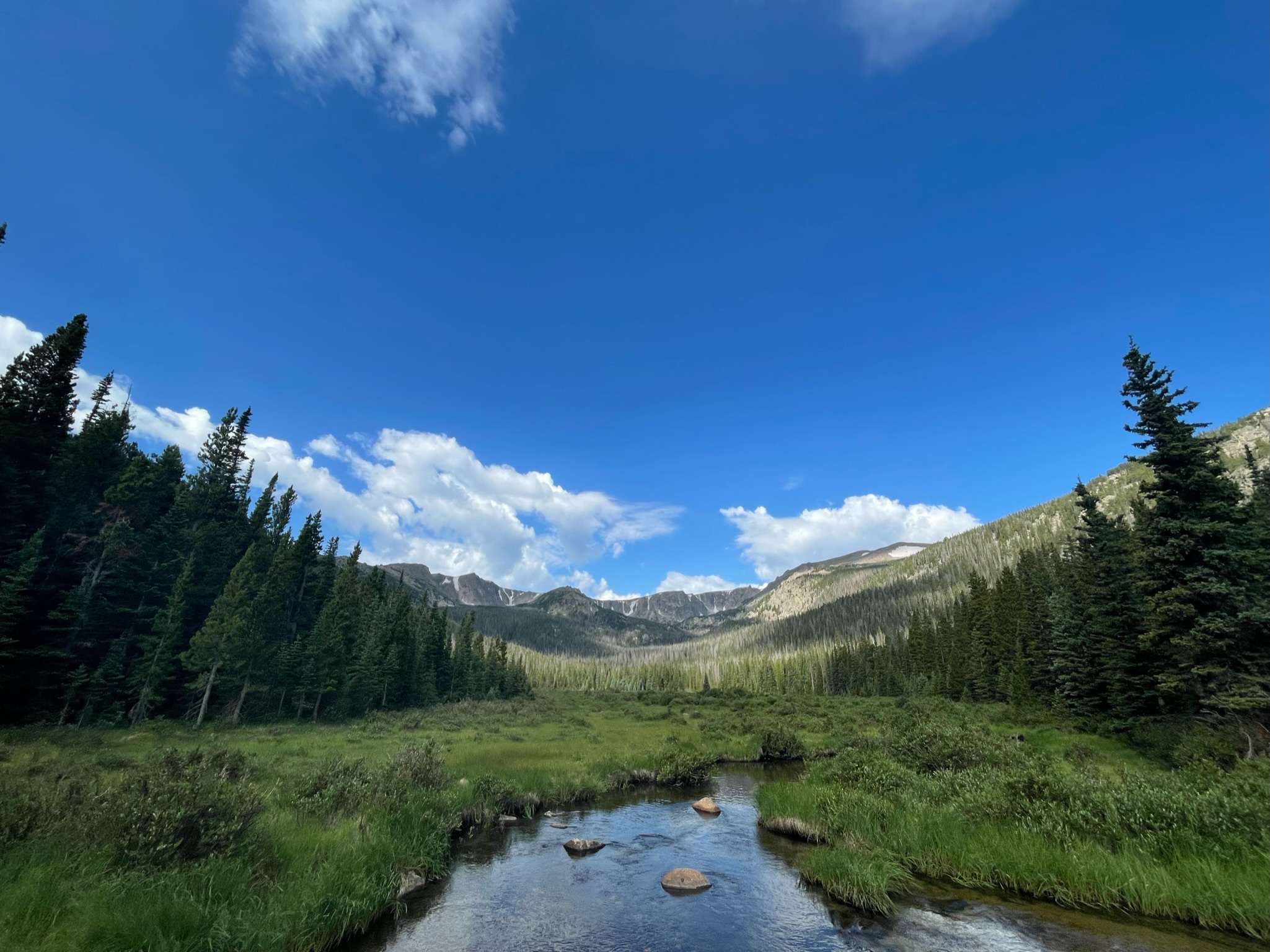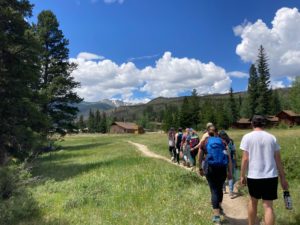
Adapted from a press release from REI Cooperative Action Fund.
A team from two colleges at Colorado State University received a $150,000 gift from the REI Cooperative Action Fund to start a nature, human health, and well-being collective called the Collective for Nature Immersion Science and Practice.
The collective’s goal is to improve the impact of current nature-based programming while working with nonprofits to expand the number of programs offered to community members, specifically those natural experiences that are intended to enhance human well-being. The collective, which will be housed in the Department of Human Dimensions of Natural Resources, will focus on improving empirical research on nature and well-being that will be used to inform nature-based programming in Colorado and beyond.
“We believe in the value of the powerful collaboration between researchers and on-the-ground ‘practitioners’ who have the wisdom of direct experience,” said Sarah Walker, co-director of cNISP and an assistant professor of human dimensions of natural resources.
Walker, along with co-director Sara LoTemplio, assistant professor of human dimensions of natural resources; co-principal investigator Jill Zarestky, associate professor in the Adult Education and Training program in the School of Education; graduate student Kaiya Tamlyn in the human dimensions of natural resources department; and Sharde Johnson, cNISP lab manager, will get the collective off the ground in June and spend the first year conducting formal needs assessments for researchers and practitioners across the country who are in the nature and health space.
How it started

LoTemplio has conducted research in the field of nature and human cognition for many years and was often asked by practitioners to help collect data on their groups to better understand their own programming. LoTemplio also saw practitioners’ desires to advance research in the field but due to logistical reasons and lack of funding, she often couldn’t help.
“I always felt very disappointed when I had to turn down these requests,” LoTemplio said.
However, LoTemplio, Walker, and Zarestky began to see the potential of bringing together multiple practitioner groups to get larger-scale information, while also training these practitioner groups on best practices with evidence-based research.
“All that was missing was an institution that explicitly worked with practitioners as partners to co-create research on this topic,” LoTemplio said. “So, we decided to create one.”
Once the collective conducts the needs assessments with practitioners, the team hopes to launch their curriculum in the summer of 2024.
About the REI Cooperative Action Fund
cNISP is one of 40 nonprofits nationwide receiving funds from the REI Cooperative Action Fund. The 501c3 nonprofit, which REI Co-op launched in 2021, is giving a total $4 million to 18 new organizations and renewed support to 22 existing partners to create a more equitable outdoors. The fund receives donations from REI Co-op, its customers, members, and employees, as well as corporate partners and foundations. Since the fund’s launch, more than 800,000 people have donated.
“This new investment is our largest to date, demonstrating the power of our community when we come together to make a positive impact,” said Kristen Ragain, REI Cooperative Action Fund managing director. “This generosity has allowed us to continue funding our existing partners, while engaging new organizations that strengthen the health and well-being of people and communities through time outside.”
The Department of Human Dimensions of Natural Resources is part of CSU’s Warner College of Natural Resources, and the Adult Education and Training Program is a master’s specialization offered by the School of Education, part of CSU’s College of Health and Human Sciences.